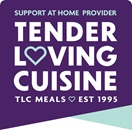Salt & Your Health
PROFESSOR BRUCE NEAL Chair of Vascular Epidemiology and Prevention Medicine, The George Institute for Global Health has been quoted as saying: ?Three quarters of the salt in the average Australians? diet will come from processed foods, particularly breads, breakfast cereals, cheeses and processed meats. About ten percent is salt added at the time of cooking and about ten percent is salt added at the table. The salt that people add at the table or while they?re cooking is only a very small proportion ? probably about 20 percent of their daily salt intake ? the other 80 percent comes from processed foods and that?s what we have to target if we?re going to get high salt counts out of the Australian diet.? It is also the aim of TLC to assist those in the community to reduce their salt intake by keeping their meals as unprocessed and as fresh as they can be from their kitchen to your table.
Most vegetables are grown in demineralised soil, thus one feels there is something missing in taste. Instinct has us reaching for the salt to add flavour. Some vegetables have a natural salty taste like sea vegetables and that is because they have a high mineral content. Natural occurring salts found in whole foods have an alkalising effect on the blood, and as the body has to have its acid vs. alkaline ratio in balance, we do need some salt. Processed salt does not have a beneficial effect on the blood, therefore, LESS is BEST.
Salt is a chemical compound (electrolyte) made up of sodium and chloride. It was traditionally used to preserve and flavour foods, and is the main source of sodium in our diet. A small amount of salt is important for good health ? it helps to maintain the correct volume of circulating blood and tissue fluids in the body. However, most people consume much more sodium than they need for good health increasing blood pressure and adding weight through water retention.
Our bodies are designed for a high potassium diet, not a high salt diet. Food processing tends to lower the potassium levels in many foods while increasing the sodium content. So it is better to eat unprocessed foods or foods that are made from a fresh and natural source such as Tender Loving Cuisine meals. Food consultants at Tender Loving Cuisine are constantly seeking the best advice from organisations such as The National Heart Foundation and their dieticians to ensure that sodium levels in their foods are acceptable. At the freezing stage of their food preparation, they are mindful that some salt taste is lost and compensate because food with no salt is bland and TLC meals are not bland. The sodium content of their foods is another reason why TLC is a recipient of the NSW Seniors Achievement Awards for Outstanding Achievement in Health and Wellbeing.
Maria Mitzikis
Nutritionist
Copyright, Maria Mitzikis, Nutrition Consultant





